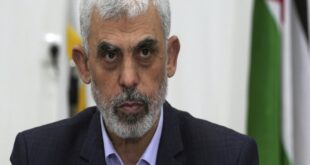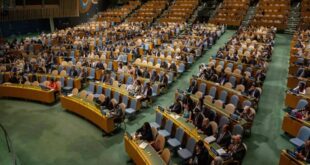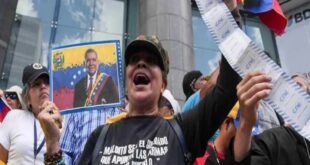
Since the annexation of Crimea in 2014, the western response to Vladimir Putin’s growing list of crimes has been to impose sanctions on his “cronies”. In recent years there have been particularly insistent demands for sanctions on rich Russian oligarchs resident in London.
So the UK government’s response this week to Putin’s recognition of the separatist republics in Ukraine’s Donbas region took the usual form: sanctions against five Russian banks and three oligarchs.
The cries went up at once: not enough! Why not Abramovich? What happened to the unexplained wealth orders, recent legal tools intended to expose and punish money-launderers? On this site the Labour MP Chris Bryant demanded much tougher action against the Russian oligarchs who abuse British laws to buy property here and hide their ill-gotten gains.
Despite the furore, we rarely pause to ask some very simple questions: are these measures actually the right sanctions? Are they targeting the right people? And, crucially, have they ever had any effect on Putin’s behaviour?
The answer to all three questions is no.
First, imposing sanctions on oligarchs has little effect on Russian policy. Some Russian oligarchs are close to Putin, and some of them probably help hide his wealth in offshore accounts. Putin uses them to finance projects that he needs done quickly – infrastructure for the Sochi Olympics, a bridge to annexed Crimea.
But it is an entirely one-way relationship. Putin allows them to prosper on two conditions: that they cough up the cash when he needs it, and that they stay out of politics. The idea that they influence his policies is pure fantasy. The proof of that is that sanctions regularly meted out on oligarchs since 2014 have made not one jot of difference to Putin’s policies. The west imposed sanctions over Crimea, the downing of a Malaysian passenger jet over Ukraine and the attempted murder of Sergei Skripal in Salisbury. None of them elicited so much as an expression of regret, far less a change of course. What they did do, of course, was deepen Putin’s already simmering hatred of the west.
Of course, money launderers who profit from the UK’s lax regime should be exposed and prosecuted. But not all of them are Russian. And none of them have a say in Kremlin decision-making – certainly not in his foreign policies.
You only had to look at the quaking members of Putin’s security council on Monday, as they were forced to stand one by one at a lectern and profess their support for his decision to recognise the Donbas republics, to understand that Putin takes orders from no one. Not from his closest political team, and certainly not from rich Russians based in London.
The billionaires are close to the Russian leader but he doesn’t listen to them. Hitting the elite who advise him would soon spread discontent
The only real value in punishing oligarchs is that it makes the west feel and look good because it is doing something. Economic sanctions – cancelling the Nordstream II gas pipeline, or restricting Russia’s access to the Swift system – may have a greater effect, but they may also rebound on us in the form of higher energy prices.
However, there is a much bolder and more imaginative approach. Russia’s ruling class – the members of the Duma, the Senate, the presidential council, the top echelons of the security and defence services, top state television employees – is several thousands strong. These men (and some women) draft, rubber-stamp, promote and carry out Putin’s decisions. Some of them also – unlike the oligarchs – actually advise him.
Being a member of the Duma or Senate is a pretty cushy number – you are well-paid, you can make an occasional speech if you wish, but you are basically there to vote for the Kremlin’s decisions, and, above all, you can extort as many bribes as you can cope with. (For this reason they are detested by a majority of Russians.) Members of the presidential council are civil servants, essential for the preparation of legislation. The security services play crucial roles in executing Putin’s vision. And TV propagandists spread disinformation.
These are the people to target – because when several thousand of the people Putin actually depends on begin to feel the consequences of his policies in their personal lives, there will be a groundswell of discontent.
Most of these people love to travel to Europe and the US. They educate their children here. They own properties here. The members of the Russian elite, their families and children, love to swan around on yachts, ski slopes and fine hotels in the west, posting pictures of themselves on Instagram. If they are denied visas to travel to the west – if they are effectively imprisoned in Russia – it will not take long for the discontent to permeate the entire political class. The message to them will be clear: if you want to enjoy your western lifestyles, you need a new leader who respects western values; until then, you’re banned.
The added value of this approach is that, unlike some economic sanctions, it will not harm ordinary Russians, in fact it will delight them.
If any kind of sanctions are going to have an effect, it is these. Forget the oligarchs; go for the political elite.

By Angus Roxburgh is a former BBC Moscow correspondent and consultant to the Kremlin theguardian.com




 World Opinions Débats De Société, Questions, Opinions et Tribunes.. La Voix Des Sans-Voix | Alternative Média
World Opinions Débats De Société, Questions, Opinions et Tribunes.. La Voix Des Sans-Voix | Alternative Média




